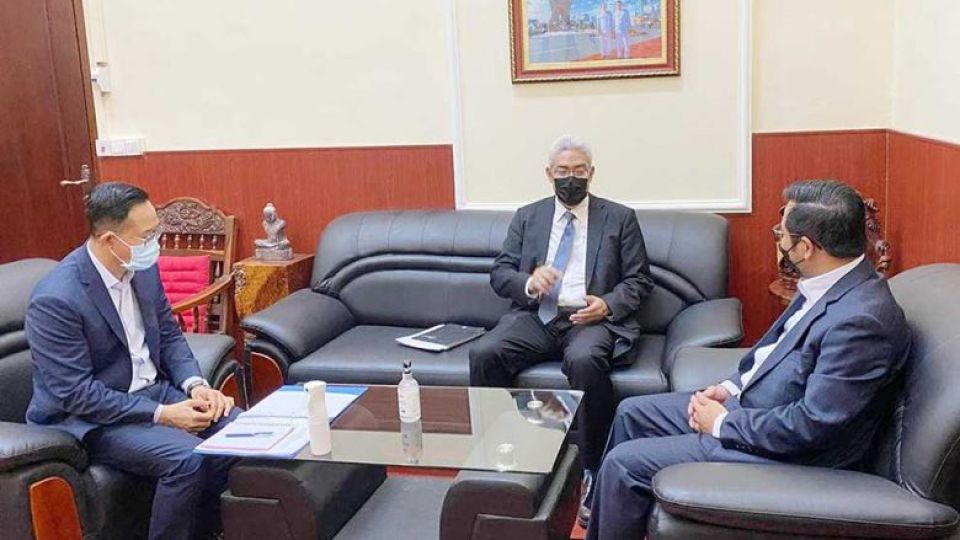February 18, 2022
PHNOM PENH – The Ministry of Justice and its Thai counterpart have held talks on ASEAN cooperation in the fields of criminal justice and the fight against transnational crime.
The meeting was held in Cambodia on February 16 between Chin Malin, ministry secretary of state and chief of the ASEAN Senior Law Officials, and Vongthep Arthakaivalvatee, former ASEAN deputy secretary-general and now special adviser to the Thailand Institute of Justice.
The talks focused on three agenda items.
The first was ASEAN cooperation in the field of criminal justice and enforcement and planning for the 3rd ASEAN Conference on Regional Crime Prevention – to be held in Phuket, Thailand, in mid-March.
The second dealt with request for Cambodian support for Thailand’s preparation of an ASEAN Joint Declaration on Crime Prevention and Cooperation.
The third concerned Thailand’s proposal for the establishment of an ASEAN regional mechanism for the management of women and other vulnerable persons in prisons.
Malin told The Post that the purpose of the meeting was for Thailand to highlight the importance of international cooperation and ask Cambodia – as this year’s ASEAN chair – for its support.
“The Thai side wants to propose a joint declaration on crime prevention and cooperation in the criminal sector, so they are meeting with all of the countries concerned to ask for support,” he said.
He said initiatives for joint declarations must pass through several stages. A working group must first discuss them, before they are passed to an ASEAN Ministerial Meeting on Law and an ASEAN Ministerial Meeting on Law and Justice.
“We will hold a joint workshop in March to review the documentation prepared by Thailand which shows the importance of setting up these mechanisms, and then we will begin the process,” he added.
Within the ASEAN framework, each member country has the right to propose a project that would benefit the region. The project should be prepared by the nation that suggests it and must be approved unanimously before it can be accepted, he said.
Malin said that in the field of criminal justice, there were many mechanisms which need to be implemented jointly, including crime prevention, education, prisoner exchanges and extradition as well as legal aid. Cooperation in these areas would help reduce crime in the region, he added.
“The problem of crime is not the problem of one country but a regional problem. Perpetrators of crimes in one country often escape to other countries. This encourages other offenders because they believe they can get away easily,” he said.
He added that cooperation between all countries in the region would mean that criminals could not escape, so regional crime would decrease. It would also lead to improved enforcement against cross-border offences like human trafficking.
“Even when it does not happen in our country, it can affect us,” he said, noting that cooperation was still under discussion.
“We are still reviewing the details of the proposal, because this was initiated by Thailand. We have a team that will study the documents and mechanisms related to it, and will discuss any changes that we feel would better serve the interests of the region. It is still too early to say whether we will support it or not,” Malin added.


